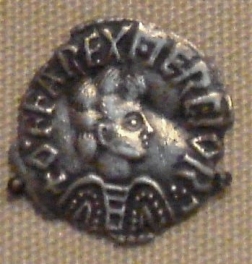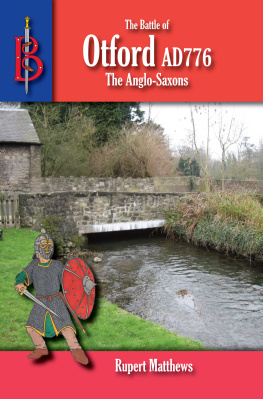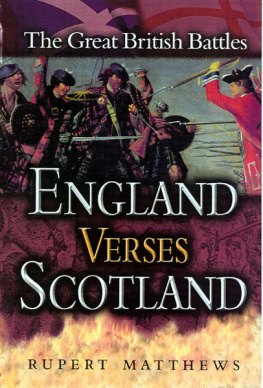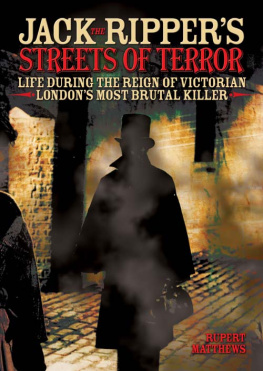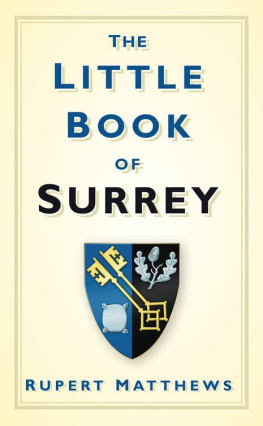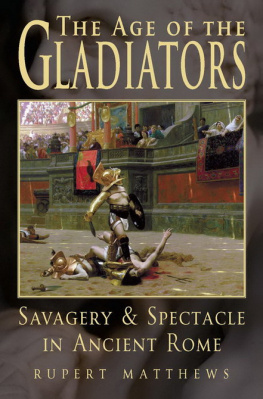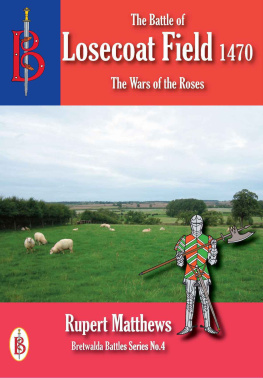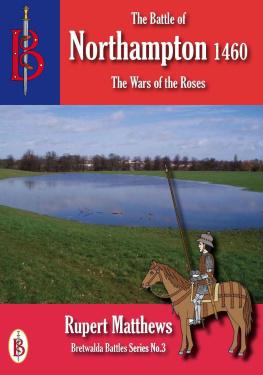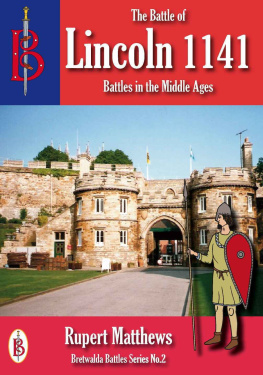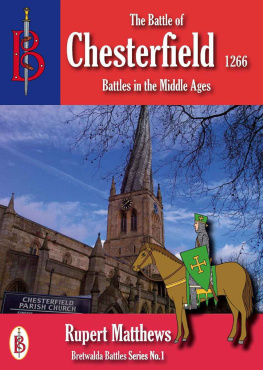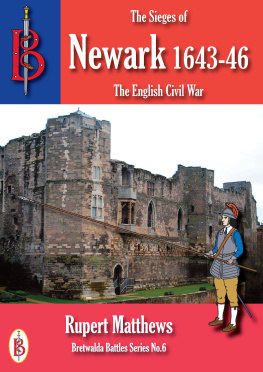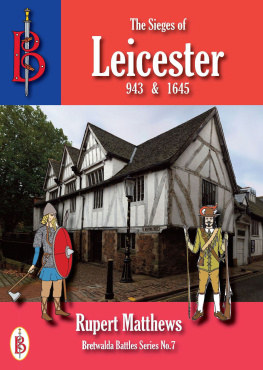Bretwalda Battles
The Anglo-Saxons
The Battle of Otford
by
Rupert Matthews
*****************
Published by Bretwalda Books
Website : Facebook : Twitter
This ebook is licensed for your personal enjoyment only. This ebook may not be re-sold or given away to other people. If you would like to share this book with another person, please purchase an additional copy for each person. If you're reading this book and did not purchase it, or it was not purchased for your use only, then please purchase your own copy. Thank you for respecting the hard work of this author.
First Published 2017
Copyright Bretwalda Books 2017
*****************
Contents
About the Author
*****************
The Mercia-Kent War
After the Roman Empire abandoned the province of Britain to its own devices in 410 the barbarians attacked. While the details of what followed are much in dispute, there is no doubt about the outcome. By around 600 most of lowland Britain had been overrun by the English - a new nation composed of Saxons, Angles and Jutes who had invaded from northern Germany together with the remnants of the native Romano-Britons who had been overrun. To the west the natives ruled themselves though they were politically divided between the princes of Cornwall and Wales, with the Picts, Scots and Cumbrians to the north.
The English themselves were also divided into a number of kingdoms. Historians have traditionally recognised seven major kingdoms and so this period has come to be known as the Heptarchy, meaning the "seven rulers". These kingdoms were: Wessex in the southwest; Sussex, Kent, East Anglia, Essex, Northumbria to the north of the Humber and Mercia covering the Midlands. There were several smaller states among the English, though most proved to be short-lived.
Britain in about 700 showing the main kingdoms and principalities.
Although both the English and the Britons were fragmented into a number of states, they did all recognise that Britain south of Hadrian's Wall had once been a united political entity. Although the Roman governmental structure had long since gone, there was a shadowy unity in the form of the title "Bretwalda", or "Wide Ruler". Only one man at a time could be Bretwalda, a title that conferred considerable prestige, but a shifting degree of power. Quite what rights the Bretwalda had over the other kings has never been entirely clear and it almost certainly varied considerably over the years as local rulers sought to shirk the more onerous duties and the Bretwalda of the day sought to impose them.
It was a dispute of exactly this kind that was to lead to the Battle at Otford.
In the early years of the English, Kent had been a small but prosperous and influential kingdom. The kingdom dominated trade with the continent and its royal family married into the powerful Merovingian Dynasty of Frankish kings that ruled most of Western Europe. It was for this reason that the first Christian missionaries from Rome landed in Kent and established the seat of the archbishopric of the English at Canterbury, where it remains to this day.
By the later 8th century, however, Kentish power and wealth was waning. Trade patterns were shifting as ports to west and north took away much of the continental trade. The Merovingians had been ousted by the Carolingians who were more interested in expanding their domains to the south and east than in maintaining links to Kent. As a result Kent was losing ground in England. Its only real claim to prestige and first rank power was that it was home to the mother church of England.
The growing power in England at the time was Mercia. Mercia had begun as just one of several small states in the Midlands, but during the course of the 7th century these various English kingdoms joined together until Mercia covered the whole Midlands from the Humber and the Ribble in the north to the Thames in the south. The increasing wealth and power of the Mercian kings enabled them to dominate the smaller kingdoms of England with only Wessex and Northumberland retaining real degrees of independence.
In 758 Mercia gained a new and dynamic ruler in the form of Offa. The previous two kings had both been murdered in the space of 12 months and though the details are unknown it would seem that Offa emerged as king from a murderous feud within the royal family. Offa moved quickly to stamp out any idea among Mercia's rivals that the feud may have weakened his kingdom. He sent troops to London to secure that increasingly important commercial city, imposed his overlordship on Sussex and sent envoys with peremptory instructions to King Beonna of East Anglia. Elsewhere he was more conciliatory, making alliances with the Welsh princes and Northumbria, while warily steering clear of antagonising the growing military might of Wessex south of the Thames.
It was in Kent that Offa was to have trouble.
*****************
The Rise of Egbert II
In 764 King Eanmund of Kent died and was replaced by two joint kings: Heabert and Egbert II. The method by which the people of Kent chose a new king is not entirely clear, but it seems to have been the nobles who had the right to appoint a new ruler, though they had to choose an adult man from among the ranks of the ruling dynasty, the Eskings. Kent had seen joint kings before, there being a long standing division between east Kent and west Kent, with the River Medway marking the boundary. Usually one of the joint kings was the acknowledged senior with the junior ruler concentrating on his own lands and steering clear of international or church matters.
A coin of Offa showing him in armour, but bareheaded. The inscription describes him as "Rex Mercior" or King of Mercia.
Offa himself travelled down to Canterbury in 764 to attend the coronations. There is some evidence that it was Offa who had chosen the new joint kings. It may be that he came to Kent not to attend the celebrations but to ensure that his placemen got chosen.
While he was there, Offa chose to demonstrate his overlordship of Kent in a very solid fashion. King Heabert granted some land to the Bishop of Rochester. It was usual when this happened for the title deeds, or charter, to be signed by the ruling King and witnessed by whichever nobles and clerics were around at the time and had learned to read and write well enough to sign their names and, hopefully, have read the charter. This particular charter, however, was signed not by Heabert, but by Offa. Heabert signed as a mere witness among others though he did describe himself as King of Kent when he did so. One name noticeably absent was that of the other new King Egbert II.
When Egbert did choose to act he did so on his own account. Some months after Offa had gone back to Mercia, Egbert chose to have a charter confirmed by King Heabert, implying that it was Heabert who was the senior ruler. Offa's name is nowhere to be seen. One name that does appear as a witness is that of Jaenbert, Abbot of St Augustine's Abbey in Canterbury. The following year Bregowine, Archbishop of Canterbury, died and Jaenbert was elected to succeed him. A few months later Heabert died and Egbert II became sole King of Kent.



